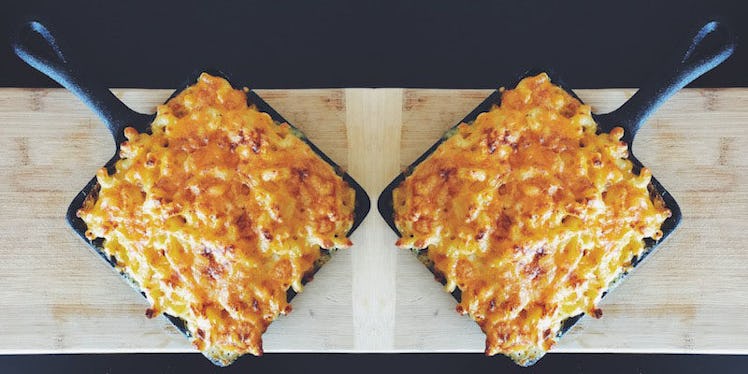Ice cream is my ultimate comfort food: As far as I'm concerned, there is no crisis that a pint of Häagen-Dazs Midnight Cookies & Cream can't fix.
Others quiet their stress over a pile of mashed potatoes while even more might cope with a steaming bowl of gooey mac and cheese.
These comfort foods, as it turns out, are called such for a reason: They're proven to provide emotional reprieve when consumed during periods of stress or unhappiness.
University of Buffalo professor Shira Gabriel, who has spent time studying this universal emotional attachment to food, hypothesizes it's not the food itself that provides comfort but rather the memories associated with the food.
She says,
If your mom makes something when you're a child, that food becomes associated with the care she gave you at the time. If the care was good, the association will be good too. It's about more than just the food.
This, of course, explains why some turn to cheese and others chocolate in times of stress; the comfort is in the nostalgic connection to our childhoods
Gabriel outlined this hypothesis in her latest study, published last week.
In the study, she monitored 100 participants' eating habits for two weeks via detailed food diaries.
Gabriel found the participants who reported strong parental ties tended to seek out and enjoy comfort foods more than those who had poor or no parental relationships.
Additionally, these people tended to enjoy comfort foods more when feeling lonely or unhappy.
This indicates, as Gabriel concludes, our connection to certain foods is an extension of our feelings toward the people we associate those foods with.
Gabriel says,
You don't think, 'I'm having mac and cheese today because I'm feeling lonely and I need my mom.' But that's actually part of what's happening.
So next time you're feeling down, try calling Mom before reaching for your third helping of butter-loaded mashed potatoes -- you might just find your craving disappears.
Citations: Why macaroni and cheese tastes so good when were down (The Washington Post)
